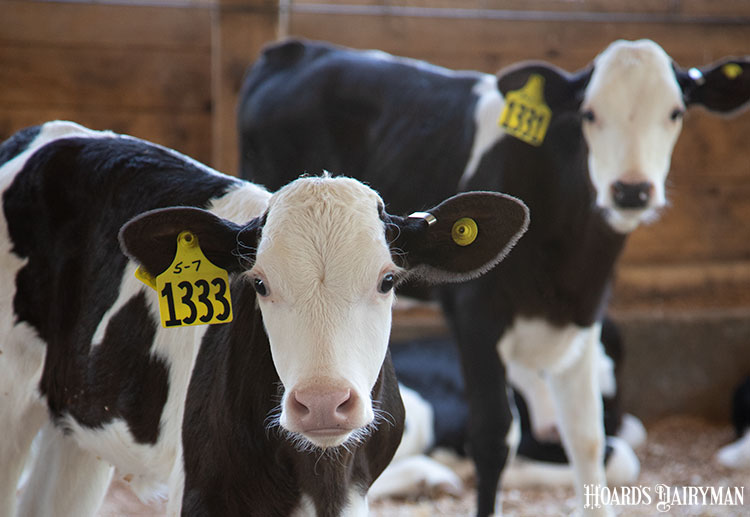
Through research and on-farm experience, we are unearthing more about the benefits of pair or group housing for calves. From earlier starter intake to less stressful weaning, it appears calves raised with their peers learn faster and adapt better to novel situations.
Those were a few of the benefits shared by Bob James, a professor emeritus with Virginia Tech, during the September Hoard’s Dairyman webinar. His current work as a dairy consultant with Down Home Heifer Solutions has allowed him to interact with many farms raising calves in groups with autofeeders, and he said these early life lessons in adaptability may carry over into adulthood.
For young calves, this peer-led learning can help calves adopt the autofeeder concept earlier. First, though, James said calves should be backgrounded and fed individually for one to 14 days. These calves should receive the same liquid (milk or milk replacer) that is being fed in the autofeeders.
The age calves should be introduced to the autofeeder depends on dry cow, maternity pen, and colostrum management, James noted. For best results, “A healthy, vigorous calf is required,” he said.
He recommended moving calves into the feeder pen in the afternoon. The calf’s first training to the feeder should take place the next morning, when someone will lead the calf to the feeder and turn on the pump. The calf could be trained again that afternoon or the next morning.
James said that trainings should not be rushed, and managers must handle calves gently. He also said that as long as the calf is healthy, it is okay to let them get a little hungry between feedings rather than train the calf too many times. Overtraining can formulate bad habits and teach the calf to wait for a person to guide it to the feeder for the next feeding.
Some of the best training will come from calves watching other calves. “By in large, calves really learn from their peers,” he said.
Unfortunately, bad habits, such as cross sucking, can also be learned from other calves. However, James said he really sees few problems with cross sucking in autofeeder barns when calves are fed enough milk, which would be at least 8 liters per day.
To learn more, watch the September Hoard’s Dairyman webinar, “Raising calves on autofeeders – will it work for you?” This webinar was sponsored by TechMix.








